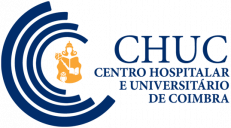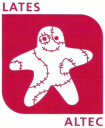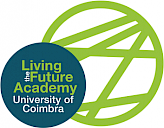Specialization Course: Intervention in Context of Emergency and Disaster- 2nd Edition
Branch 1: UC Diploma
BRANCH 2 - DOUBLE CERTIFICATION: by the UC (Diploma) and by the CHUC Training Service, an entity accredited in the area of training by the Ministry of Health–ACSS, IP, in the Advanced Life Support (ALS) and Trauma Teams courses and by the INEM in SAV.
(Polo I and Polo III of the University of Coimbra)
Presentation
The increase in the frequency and intensity of risk scenarios and natural catastrophes determines the need for investment in specialization for risk management, which empowers actors to act in emergency and disaster (EC) contexts.
The Course is made up of a Common Core and two Specialization Branches:
Branch 1: Territorial Risks
Branch 2: Health Response
and is structured into 8 curricular units (7 mandatory and 1 optional), taught in person or online, synchronously, and is taught on Fridays and Saturdays.
COMMON TRUNK
| Course Unit | Type | Contact Hours | Frequency |
|
Pre-hospital organization of emergency and type of disaster |
Mandatory | 15h | In-person / Online |
| Organization and extra-hospital response in emergency/disaster scenarios | Mandatory | 8h | In-person / Online |
| Final Test | Mandatory | 12h | In-person |
BRANCH 1 | TERRITORIAL RISKS
| Couse |
Unit Type |
Contact Hours | Frequency |
| Risk and vulnerability analysis | Mandatory | 2h | In-person / online |
| Climate and risks | Mandatory | 12h | In-person / online |
|
Geographic Information Systems and Cartography in Risk and Disaster scenarios |
Mandatory | 2h | In-person |
| Basic life support and automatic external defibrillation | Mandatory | 8h | In-person |
|
Legal aspects in the context of emergency and disaster |
Optional* | 12h | In-person / online |
|
Support for emotional management in emergency and disaster scenarios |
Optional* | 12h | In-person / online |
|
Ethics and communication in crisis and disaster scenarios |
Optional* | 10h | In-person / online |
|
Branch 1 contact hours: 95h * Choose only 1 UC |
|||
BRANCH 2 | HEALTH RESPONSE
| Course | Unit Type | Contact Hours | Frequency |
|
Support for emotional management in emergency and disaster scenarios |
Mandatory | 12h | In-person/online |
| Clinical scenarios in disasters and Catastrophe I | Mandatory | 4h | In-person |
| Clinical scenarios in disasters and Catastrophe II | Mandatory | 24h | In-person |
| Hospital organization and response in disaster/catastrophe scenarios | Mandatory | 3h | In-person/online |
| Legal aspects in the context of emergency and disaster | Optional * | 10h | In-person/online |
| Ethics and communication in crisis and disaster scenarios | Optional * | 10h | In-person/online |
|
Branch 2 contact hours: 122h * Choose only 1 UC |
|||
Location of teaching Modules I and II:
Pole I - Student Hub
Dates for the 2nd edition to be announced soon.
Objectives
The increased frequency and intensity of risk scenarios and natural catastrophes, determine the importance of investing in a specialization for risk management, which enables the actors to act in emergency and disaster (EC) contexts.
Objectives: Identify priorities for intervention in situations of risk; Knowing the chain of qualified actors to operate in scenarios of EC;
Training of competencies in the initial assessment and resuscitation of the patient victim of trauma, drowning, poisoning, or burns;
Perform techniques of BLS and ALS to be applied in context EC;
Knowing how to use specific equipment in situations of trauma and emergency;
Identify risk/emergencies caused by external and internal geodynamics agents, technological risks and terrorist threats;
Acquire basic skills to understand the emotional context arising from scenarios of CE;
Promote critical reflection on safety procedures and care provided in situations of urgency and emergency.
Skills to develop
Acquire knowledge about the organization of the command chain at the level of pre-hospital rescue;
know how to apply techniques of BLS and ALS;
Develop positive behaviours and the ability to identify priorities for intervention in EC scenarios;
Identify risk factors generated by internal and external geodynamic agents, and anthropic actions;
Acquire basic notions of climate and risks.
Access conditions
Branch 1 - Territorial Risks: Have a degree in one of the following areas: Geography, Earth Sciences, Journalism, Psychology, Law, Engineering; or have a degree in a health-related course; or have a degree and be a member of the Armed Forces.
Branch 2 - Response in health: Hold an Integrated Master's Degree in Medicine or a bachelor’s degree in Nursing.
Numerus clausus: 1st Phase: 30 vacancies distributed across the following branches:
15 vacancies - Territorial Risks Branch
15 vacancies - Health Response Branch
*Note: up to a maximum of 6 places reserved for the IUM/UEFISM partner.
Vacancies distributed as follows: - 2 vacancies - Territorial Risks Branch - 4 vacancies - Health Response Branch.
If these vacancies are not filled, they revert to the general contingent.
2. Minimum number of students for the course to operate: 5 students in each branch.
COURSE PRICE TO BE BEARED BY THE TRAINEE: €1,000
(The price of the course is €2,000 and will have support of 50% from the PRR - Living the Future Academy Project - in the form of a scholarship, in line with the type of scholarships provided for in the Regulation for the Attribution of Incentives for the Training of Young People and Adults within the scope of the Living the Future Academy Project).
In properly registered cases, the incentive may exceed 50%.
- Any financial benefits that may be granted under the PRR are conditional on candidates holding a Portuguese NIF and residing in Portugal, at the time of the course;
- Trainees who wish to repeat training for which they have not been approved and for which they have already benefited from a scholarship are not eligible for a scholarship;
- Trainees who register in a course or initiative financed by PRR-LFA (Investments RE-C06.i03.03 – Adult Incentive and RE-C06.i04.01 – Impulso Jovens STEAM, opened by Notice 01/PRR/2021), accept that they were aware of the total/partial discount on the price defined for the course, initiative and/or attendance expenses and authorize that it be granted if its attribution is decided under the regulations in force.
Methodology (organization and functioning of the course)
This training action will be organized in the form of a training course, with theoretical sessions, conference mode, complemented with practical application.
The theoretical component is organized in plenary conferences followed by debate.
The theoretical-practical component is organized in field work, with visits and interactions with training resources (documents) that can be used in a school context.
Predominant scientific area
Languages of learning/evaluation
Português
Study plan
Promoters
Education Institutes
University of CoimbraOrganic unit(s)
Faculdade de LetrasFaculty of Medicine
Faculty of Psychology and Education Sciences
Faculty of Law
Entidade(s) subsidiária(s)
Unidade de Ensino, Formação e Investigação da Saúde Militar - UEFISMAssociação Lusitana de Trauma e Emergência Cirúrgica - ALTEC
Instituto Universitário Militar - IUM
Investment RE-C06-i03 - Adult Incentive and Investment RE-C06-i04 - Young STEAM Boost within the scope of the Living the Future Academy Project supported by the PRR - Recovery and Resilience Plan and the Next Generation EU European Funds.






